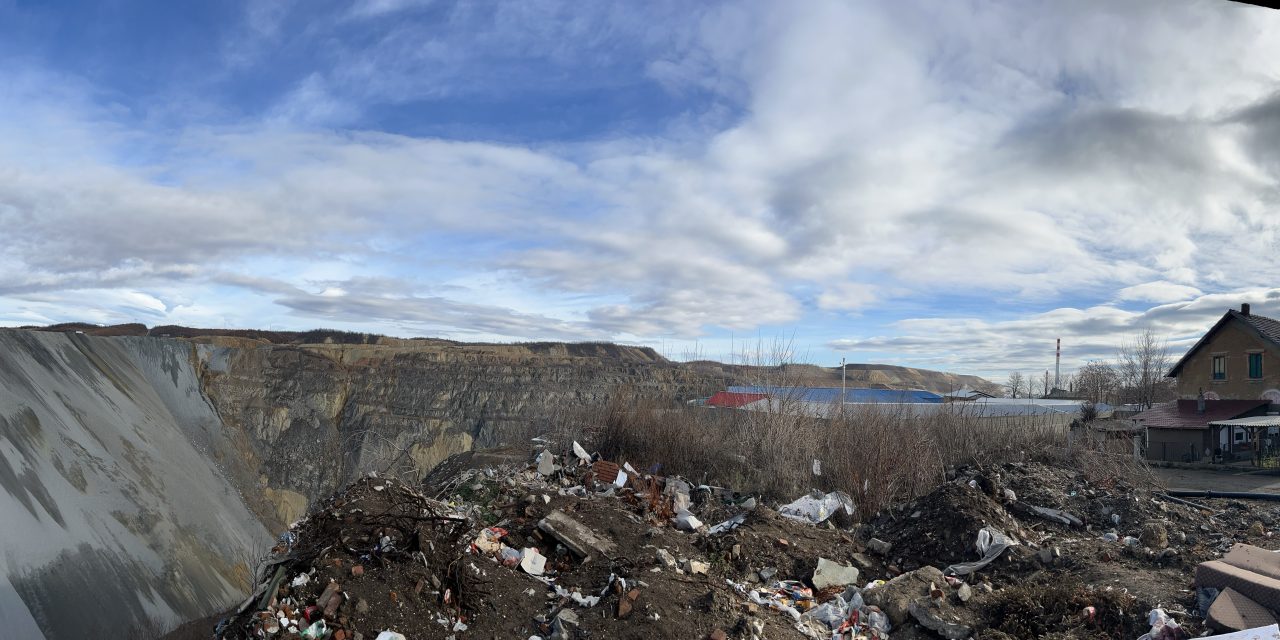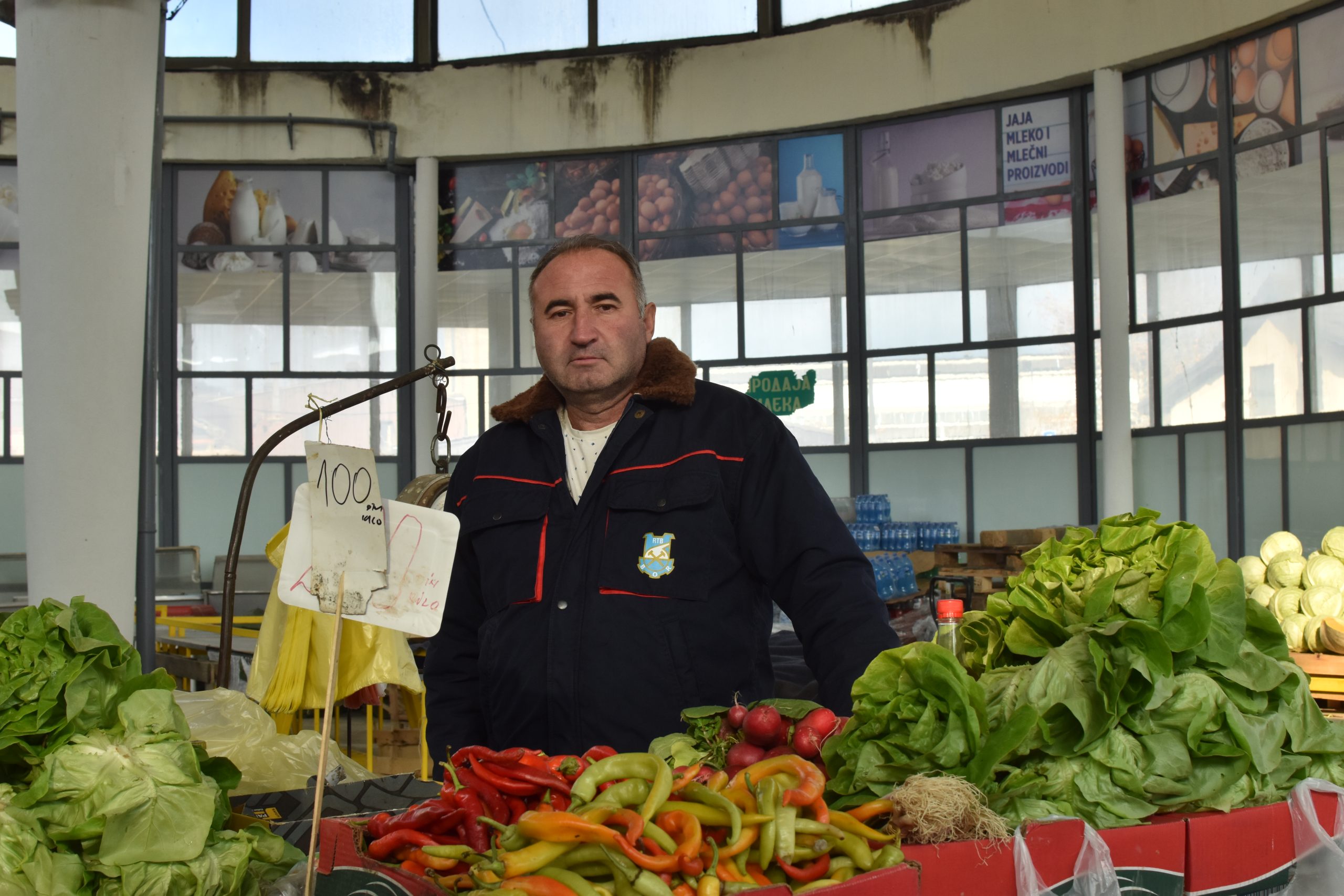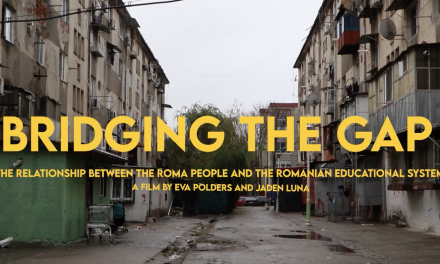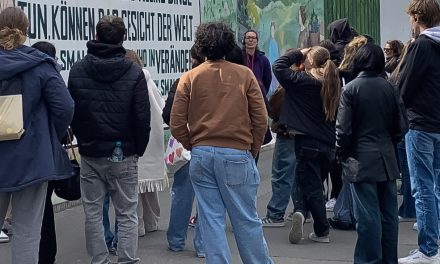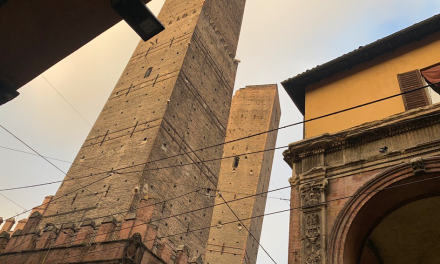At the gateway to Europe, in Serbia—a candidate for EU membership for over a decade—a quiet transformation is unfolding. In Bor, a small town in Eastern Serbia, a Chinese company, Zijin, has revived the second-largest copper mine in Europe. Once fading, Bor now thrives with new football fields, young workers returning, and salaries €200 above the Serbian average. Yet, this economic revival comes at a steep cost: rising cancer rates, asthma, and lives shortened by an average of two years. As families are displaced to make way for expanding mines and the government looks the other way, Bor’s story reveals a stark reality—economic recovery intertwined with health risks and the growing influence of Chinese investment at Europe’s doorstep.
By Siem van Eck
In 2018, China’s Zijin Mining acquired a 63% stake in the state-owned RTB Bor, pledging €1.226 billion to modernize operations. This investment reflects Serbia’s role in China’s Belt and Road Initiative—a global strategy to strengthen economic ties and infrastructure across Asia, Europe, and beyond. As the first European country to sign a “Shared Future” agreement with China, Serbia has attracted billions in Chinese investments, from revitalizing the Smederevo steel mill to building roads and railways. While these projects boost the economy, they also raise questions about environmental impact and Serbia’s EU aspirations.
Since Zijin took over, it claims to have made “significant contributions” to the local economy. The company created over 9,000 jobs and hired nearly 3,000 new employees. Zijin states that employee income has seen a notable increase. In 2023, the monthly average net income of the company’s employees reached RSD (Serbian Dinar) 125,000, showing an 87% increase compared to 2018. This means mine workers in Bor have an average salary of €1,067, approximately 25% higher than the Serbian net average wage of €856.
''Since the Chinese came, it’s been business as usual—mining is mining''
“It is our culture, ingrained in our town,” Polko explains, referring to Bor’s mining heritage. His family has been working in the mines for generations. His father and grandfather worked in the same mine as he does. “Since the Chinese came, it’s been business as usual—mining is mining,” he says while eating his hotdog on the boulevard. It’s lunchtime, and school kids spend their money on a quick snack, just like Polko. “It’s pretty much the same. However, it would have been dissolved if the Chinese hadn’t taken over the company in 2018. That would’ve been a shame. We have a big deposit here and loads of work.”
Enlarge
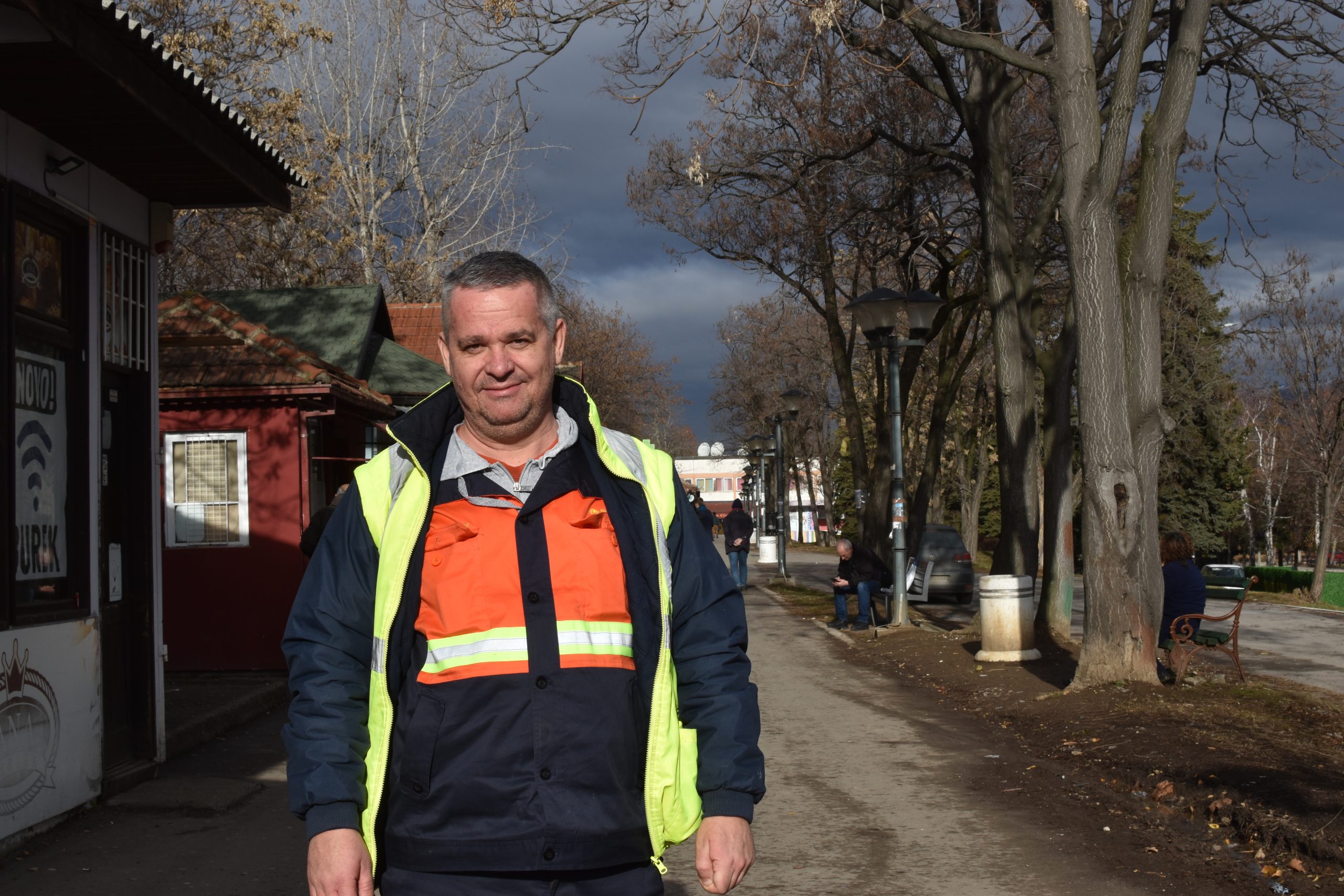
But how can an 87% increase in wages and a 25% higher wage coverage be seen as “pretty much the same”? The broader economic picture tells a more complicated story. From 2020 to 2023, Serbia’s cumulative inflation rate reached 32.5%. This means that while wages may have doubled on paper since 2012, in the whole of Serbia. They haven’t kept pace with the rising cost of living. When adjusted for inflation, real wage growth amounts to just 31.5% over the last decade—an average of only 2.86% per year within Serbia, equivalent to Bor.
"The mines are bad for your lungs'
On a recently built football field, a group of teenagers discusses the health problems linked to the mines. “The mines are bad for your lungs,” one says, pointing to a friend with asthma. In Bor, sulfur dioxide has been detected in the air—a gas released during copper ore smelting. It can cause coughing and breathing difficulties and worsen asthma and other lung issues.
Enlarge
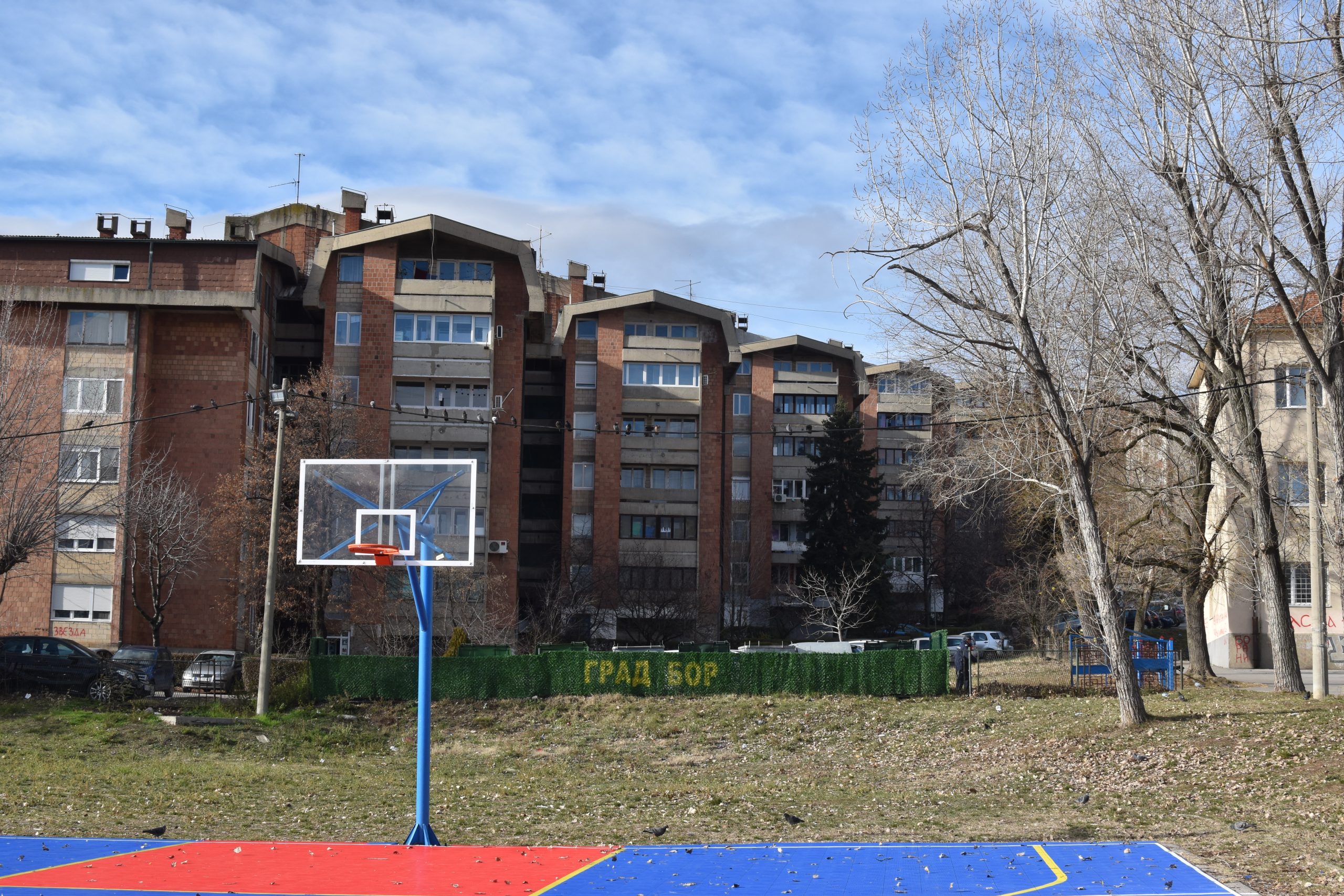
“Along with sulfur dioxide, the air in Bor contains heavy metals like arsenic, cadmium, nickel, and lead,” explains Hristina Vojvodic, Senior Legal Advisor at the Renewables and Environmental Regulatory Institute (RERI) in Belgrade, which monitors Zijin’s environmental impact. “Arsenic levels in Serbia in 2021 were the highest in Bor, averaging 153 nanograms per cubic meter—well above the legal limit of 6 nanograms. In October 2021, levels spiked to 465 nanograms. Long-term exposure to arsenic can lead to cancer, lung disease, and organ damage. This contamination comes from mining and processing copper ore.”
Enlarge
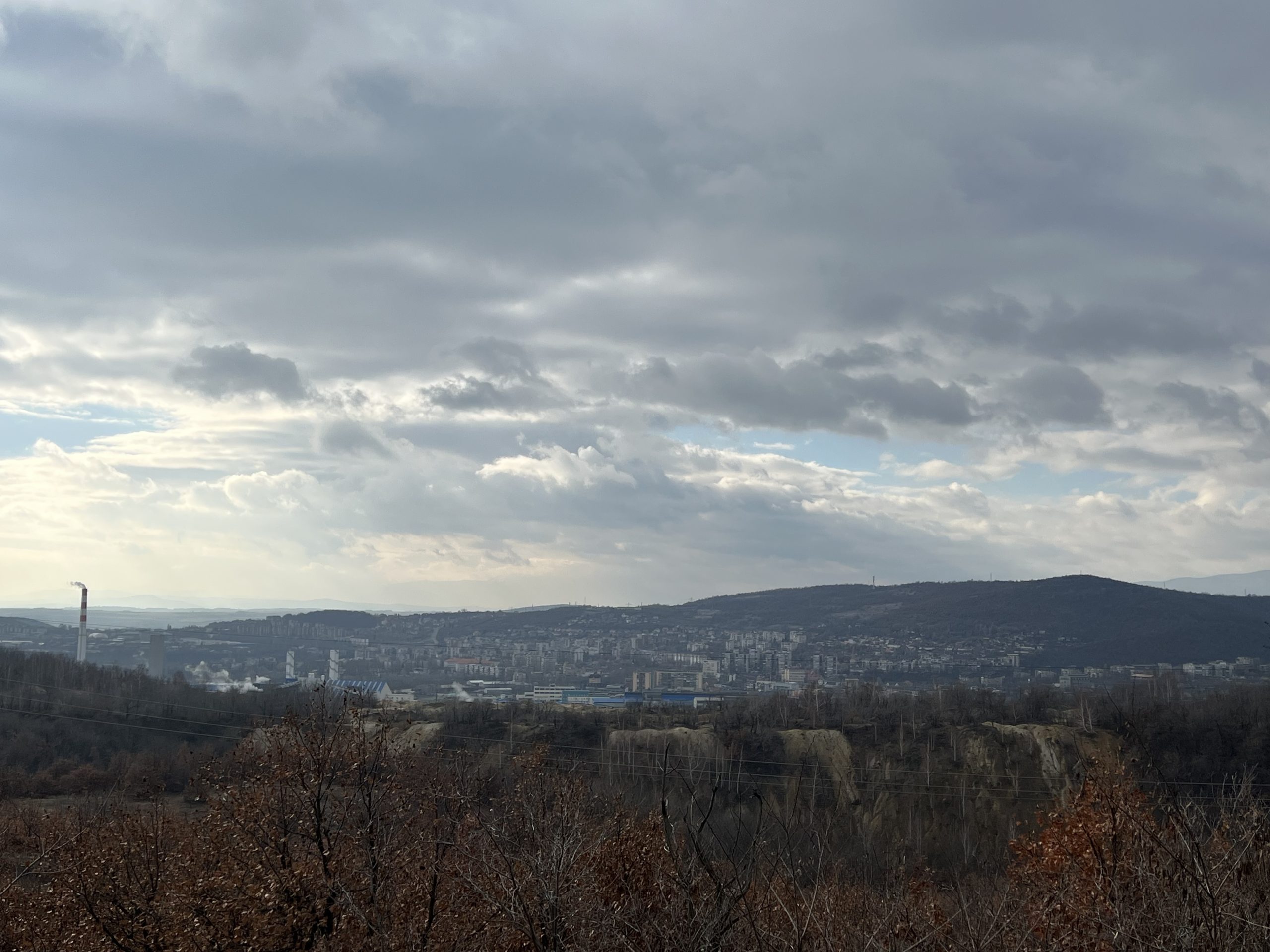
“You have that in every city in the Balkans,” responds Polko, the mineworker, as he finishes his hotdog. “It’s not just the mining causing the pollution. Many people burn wood or coal for heat, especially in winter, which adds to the pollution. There are cities with much worse pollution than Bor.”
Polko’s statement fits within the broader context of Serbia’s ongoing air quality crisis. Pollution has become a major health issue, with air pollution being the 7th leading cause of death in the country, responsible for 12,700 deaths each year. The entire population lives in areas where fine particulate matter (PM2.5) levels exceed the World Health Organization’s annual guideline of 5 micrograms per cubic meter.
Enlarge
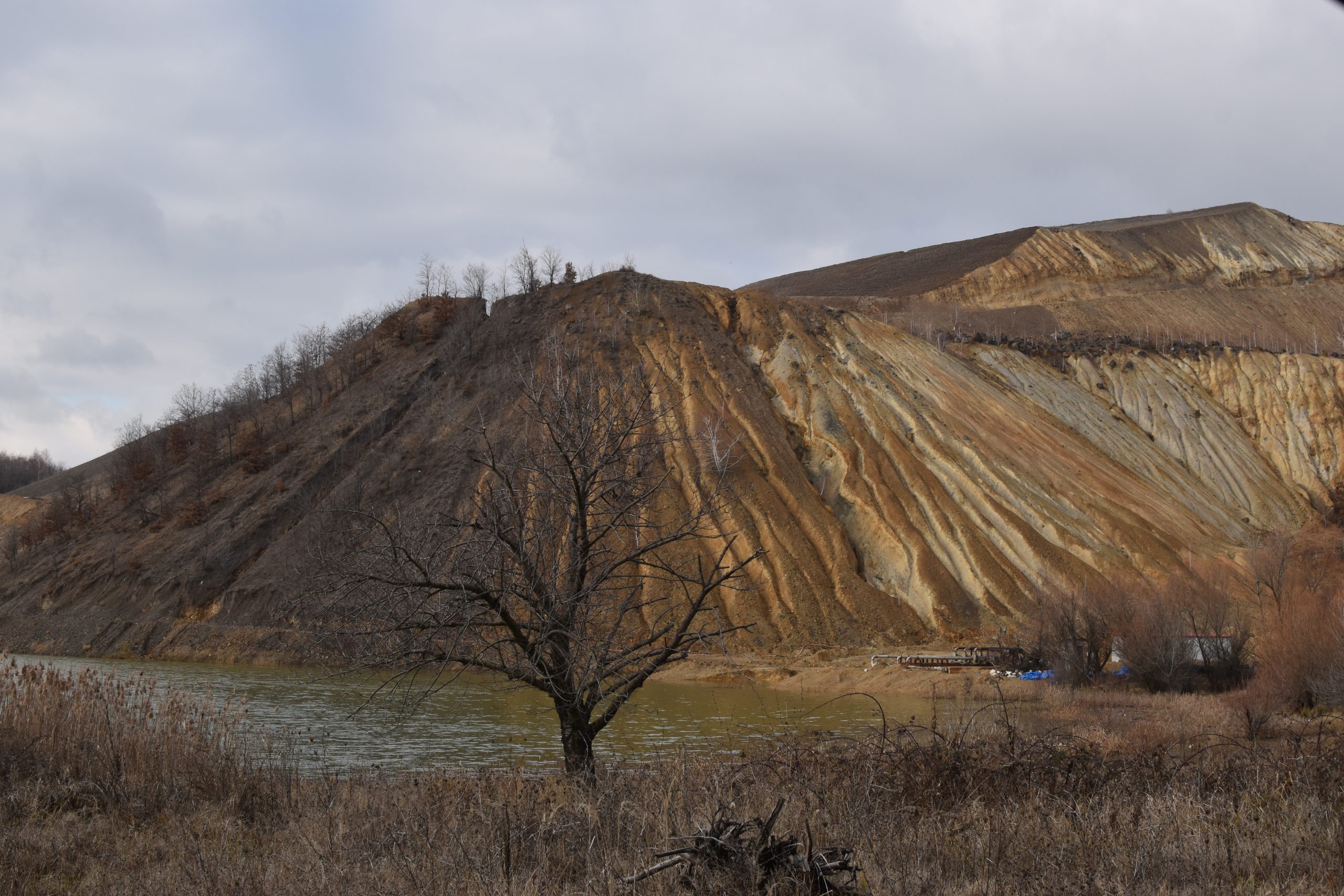
"It’s not just the mining causing the pollution''
On the outskirts of Bor, on the top of a hill, we meet Slavica outside her home—an old farm with a barn covered in faded corrugated metal and a blue-green house standing still in the winter sun. She gathers firewood for the stove, her car parked nearby; it’s Sunday. Her family has owned this land for generations, but now she and her sister, the last heirs, have been forced to sell.
“We had no choice,” she says. “The explosions, the dust, the noise—it got unbearable. We had to leave. The only ones interested in our property were the Chinese.”
She points toward the mines in the distance. “Zijin works too fast. There’s no care for the environment. Mining has always been part of life here, but this pace is out of control. Faster extraction means more harmful particles in the air, more pollution, more health problems.”
Slavica works in mine flotation, where she operates in the control room. She has held this role for 15 years and oversees the flotation process, collects data, and ensures its transmission.
“We are a mining town. Copper has been mined here for decades. But the Chinese don’t follow the rules—they exploit the land. What happens in ten years when the mines are empty? They’ll leave us with the mess. Agriculture is already impossible because of the pollution. What will people live on then?”
She stacks the firewood. “We’re surviving now, but at what cost?”
Enlarge
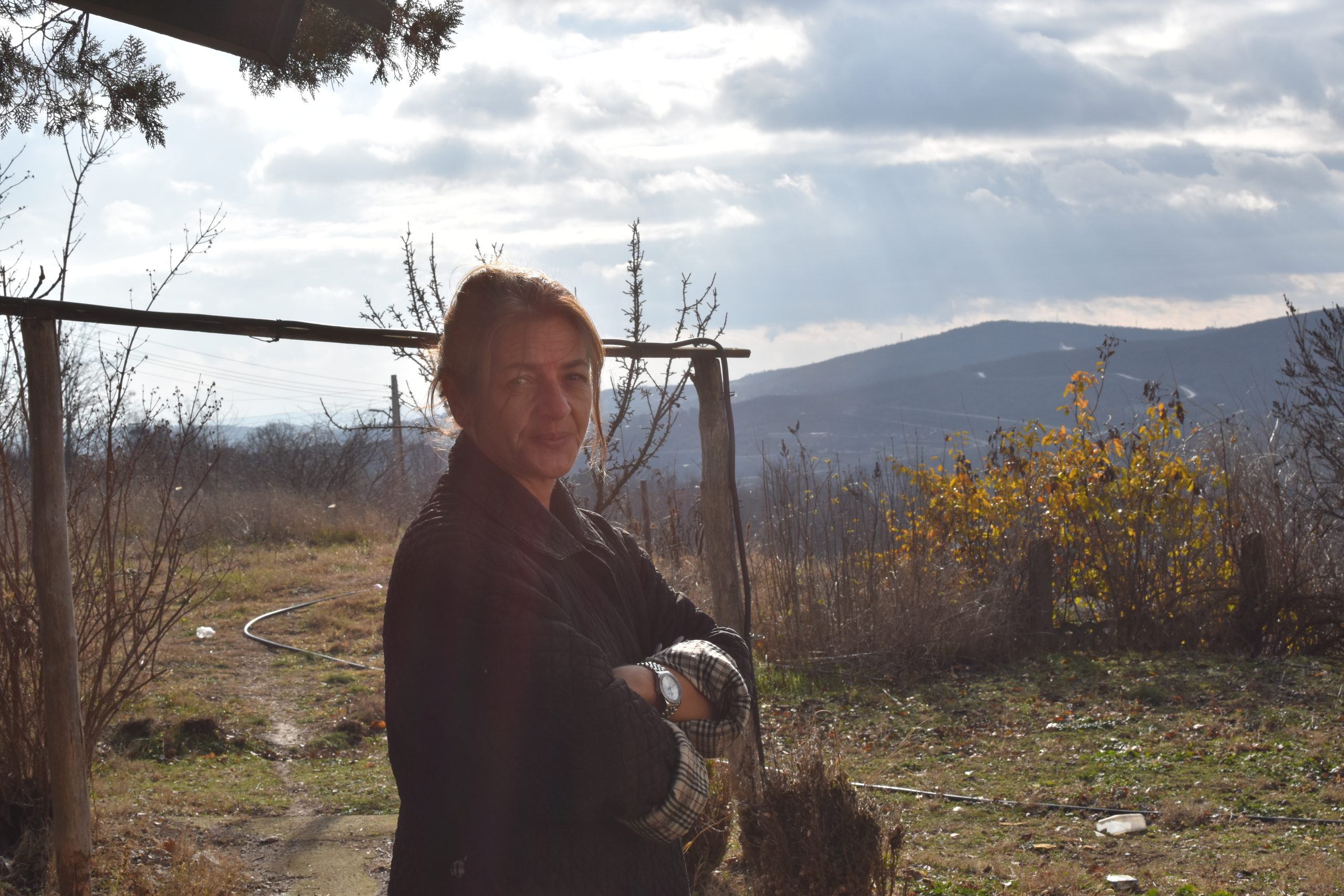
Slavica worries that the expansion of the mines is not just a vague fear—Zijin’s actions have already had consequences. Over the past three years, the company has been convicted six times for illegal construction without the necessary permits. Despite the legally prescribed fines of RSD 1.5 to 3 million (approx. EUR 12,800 to EUR 25,600), five of these convictions resulted in penalties below the minimum, with only one reaching the minimum fine. In 2024, the highest fine imposed was 2 million dinars (about EUR 17,000) for illegally building a mining facility, a fraction of the company’s planned €1.226 billion investment in the region.
The expansion of Zijin has had profound consequences for the surrounding area, including the small village of Krivelj. As the mines become increasingly dominant in the countryside, Zijin has quadrupled its production since 2018, reshaping the landscape and the lives of those who call it home.
Zijin has already relocated many of the villagers, offering compensation to those willing to leave. However, the majority of those who remain are Vlachs—Orthodox Christians who have safeguarded their unique language, traditions, and close-knit way of life for centuries. For them, leaving is not just about finding a new place to live; it means the potential loss of their community, culture, and identity.
Enlarge
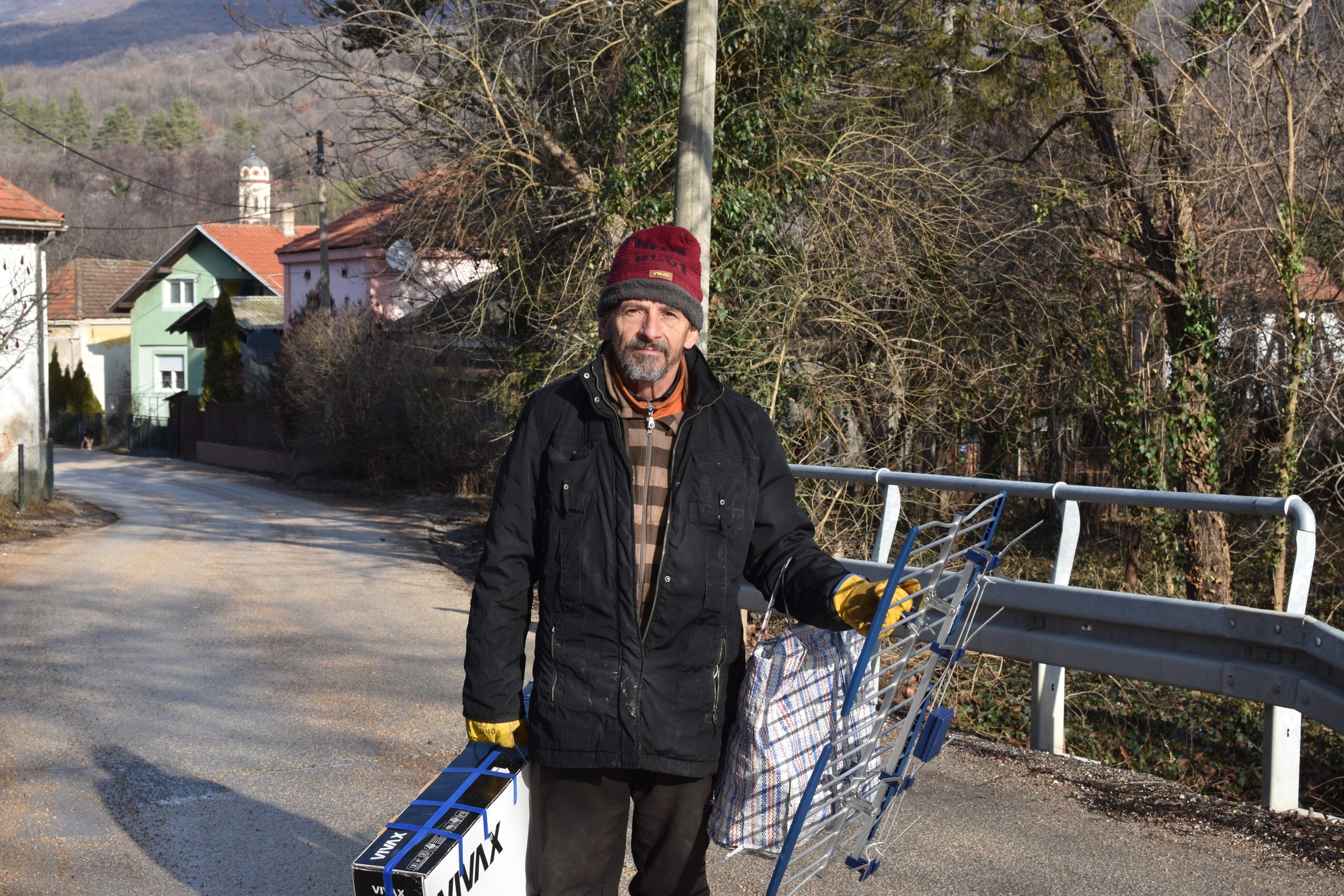
“Most people have left—took their money and went. But where can I go?” says Milorad, a 70-year-old Vlach who still lives in the village of Krivelj. With his hat pulled low and gloves snug against the cold, he carries a TV antenna and a small LED television up the hill. “I live on a small pension of 700 euros. I’ve learned to live with the dust and the cracks in the walls. But tell me, where else am I supposed to go?”
"It’s about the lack of accountability and the disregard for those living in these so-called sacrifice zones."
Strategic decisions, as Hristina Vojvodic explains, are often made without consulting the people most affected.
“Our laws in Serbia are actually quite solid,” Vojvodic (RERI) says. “The problem is enforcement. The company shouldn’t be breaking the law, but the authorities must ensure the rules are followed. If our laws were properly enforced, we wouldn’t see such widespread pollution or environmental damage.”
She continues, “The priorities here are always skewed in favor of the company. Strategic decisions are made without consulting the people, and entire villages are left uncertain about their futures. It’s not just about jobs or development—it’s about the lack of accountability and the disregard for those living in these so-called sacrifice zones.”
Enlarge
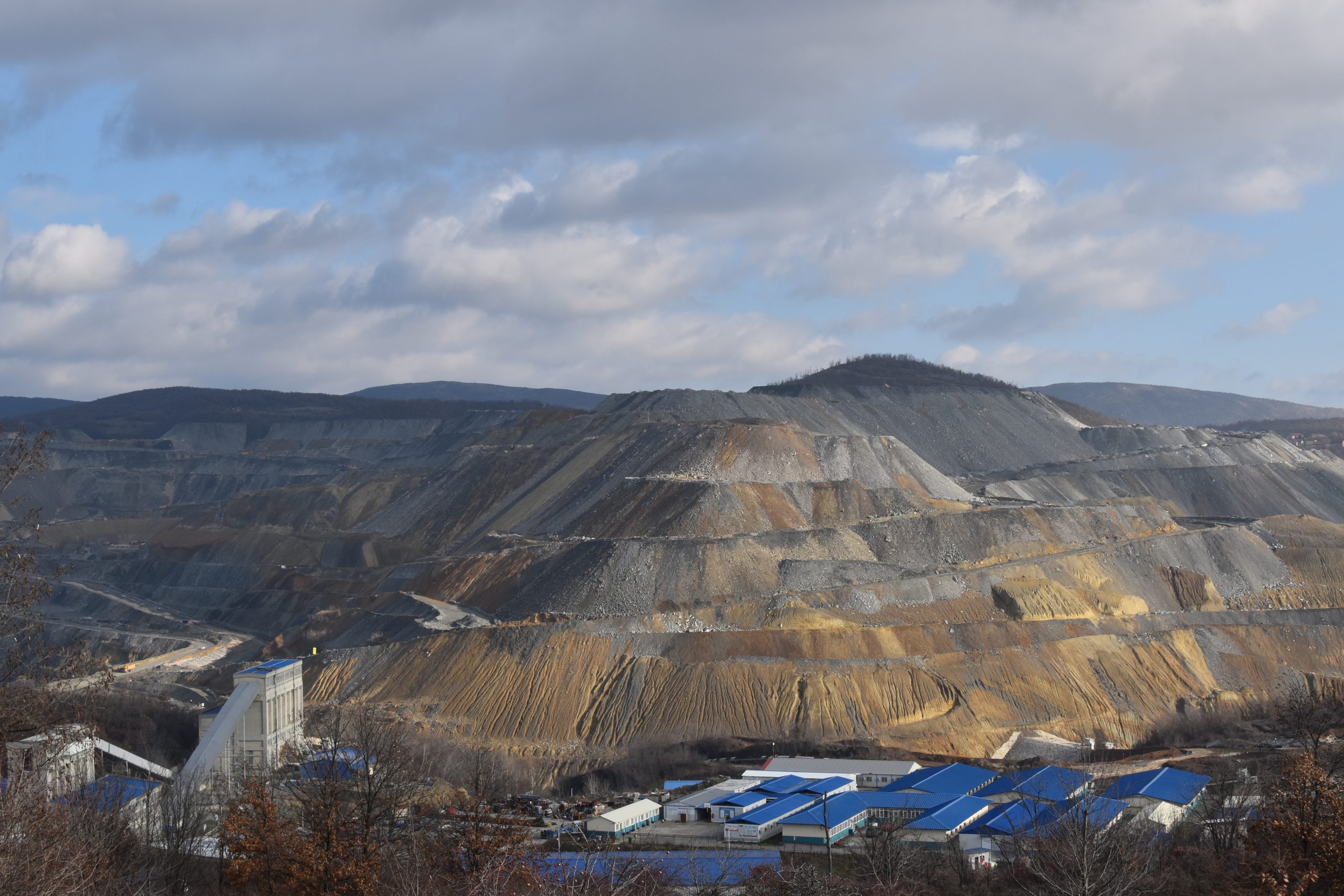
At the same time, Zijin’s efforts cannot be ignored. The €312 million renovation of the TIR Smelter in 2024 is a step toward improving the region. The old smelter from 1960 of the state-owned RTB was significantly polluting the area. According to the company, the renovation reduced sulfur dioxide emissions by over 90%, the sulfur dioxide that can cause breathing difficulties and worsen asthma and other lung issues. This transformation of the smelter is part of Zijin’s attempt to balance its industrial activities with some degree of environmental responsibility.
In Bor, inside the mining faculty at the Technical University of Bor. In the hallways, we find Milan Stajic, a lecturer at the faculty. He takes a serious look in his office filled with piles of paper and mustard-green chairs: “Mining is indeed not the greenest technology, not here, not elsewhere. However, copper is a critical raw material for our country, and we have the means to extract it. The mines here will be operable for at least 50 years if they do not find new resources.”
Enlarge
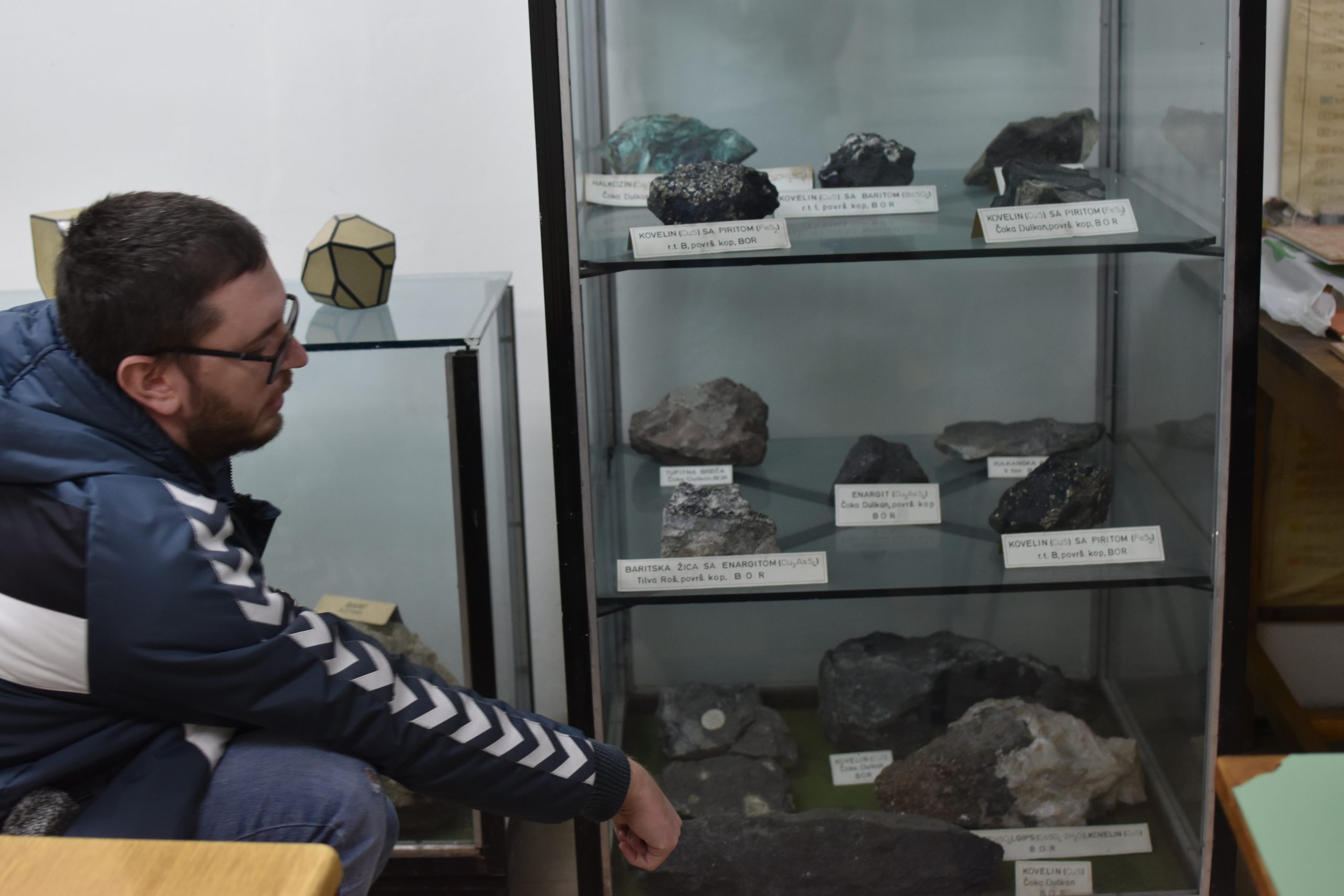
In a lecture room on the first floor, he shows us the biggest collection of minerals in the country, a collection as large as a classroom with small notes detailing the materials. He shows the copper mines within the area and talks about the problems they cause to displaced families in villages around Bor, such as Krivelj. “But we have to compromise. Yes, the mines cause environmental damage, but that has been the case even before.”
”Zijin has made improvements to its equipment,” he continues. ”People in Belgrade might criticize it, but it’s easy to say that when you live in the city and work in tech. We depend on mining here. Without copper, gold, or other raw materials, we wouldn’t have the life we do. We need to mine something. You can’t expect to live like a developed country without industry. It’s about finding a balance—there’s no easy answer.”
Back on the Boulevard, Olga, an older woman sitting in the sun, sells eggs to passersby. When asked if she thinks the Chinese have made improvements since arriving in Bor, she looks up and smiles, reflecting on the changes. “What I can tell you,” she says, “it’s better now, good for them and for us. I hope they enjoy their time here, because we like to sell our goods, and now we have friends.”
Enlarge
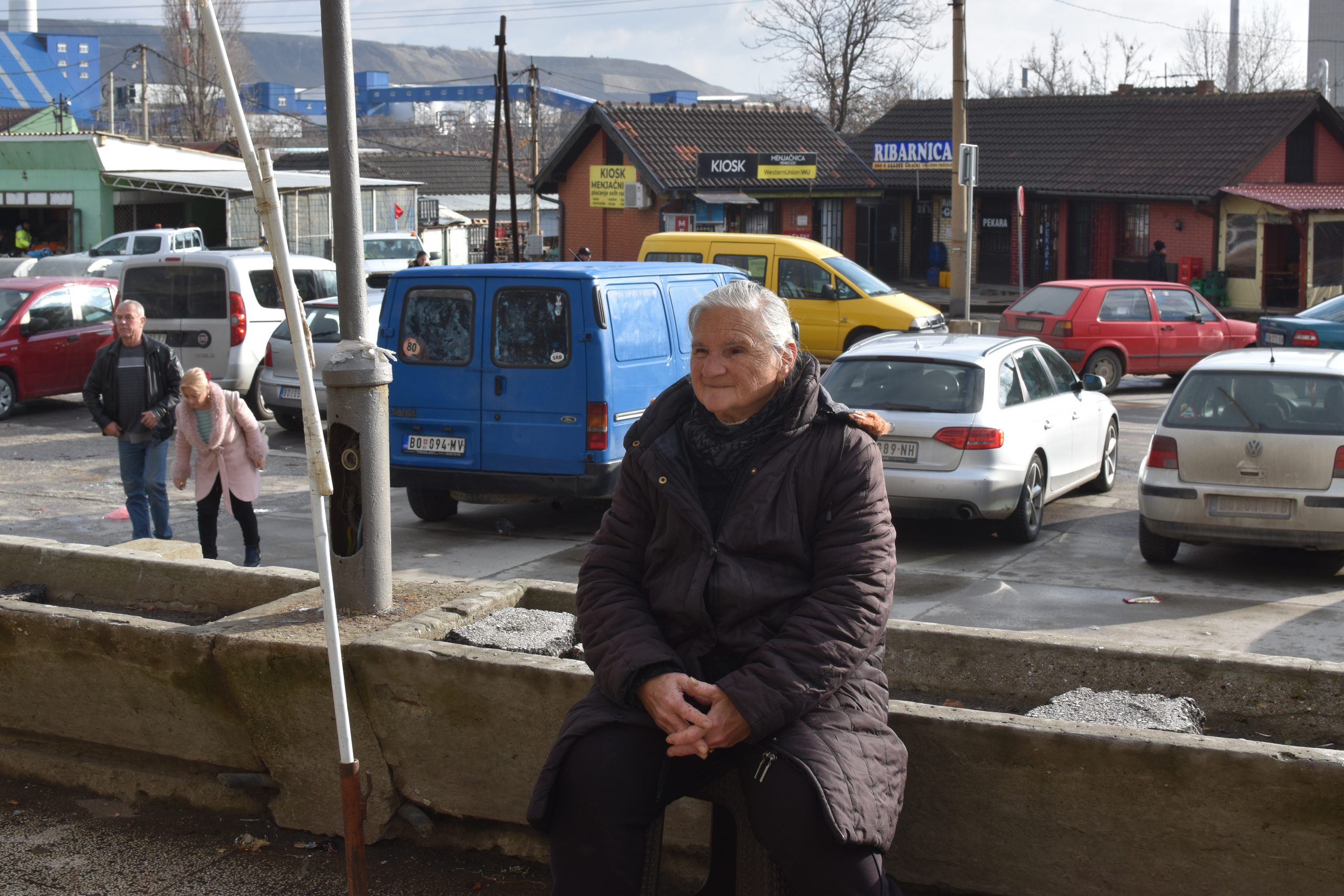
She pauses for a moment, then continues, “The air is better now, there’s no pollution like before. It’s cleaner, more beautiful. They’re planting trees, flowers, bringing life back to the environment. It’s not abandoned like it used to be; now it’s nicer, cleaner.”
